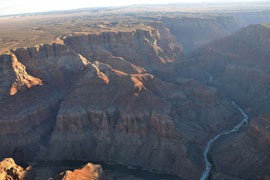Cronkite News has moved to a new home at cronkitenews.azpbs.org. Use this site to search archives from 2011 to May 2015. You can search the new site for current stories.
Tribal water-rights bill all but dead for this Congress, officials say
WASHINGTON – A bill that would have allocated $350 million for three drinking-water projects on the Hopi and Navajo reservations is nearly dead, according to sources on both sides of the proposal.
After months of debate, the Hopi tribe voted in June and the Navajo in July to oppose the proposed congressional settlement, which would have built the water projects in exchange for the tribes ceding future water-rights claims.
Tribal opponents said they felt the proposal was pushed on them with little opportunity to digest the complex plan, but supporters argue that stakeholders had been involved throughout the process.
To no apparent avail.
“As presently configured it’s dead, deader than a doornail,” said former Hopi Chairman Vernon Masayesva. “It’s not going anywhere.”
Despite strong support from the leadership of both tribes, public disapproval began as soon as the bill was introduced, said Masayesva, and ultimately that opposition was too much to overcome.
The main sponsor of the proposal, Sen. Jon Kyl, has said all along that the bill would not move forward without approval from both the Hopi and Navajo tribes. Kyl, who is retiring at the end of this term, recently told Navajo President Ben Shelly it is unlikely he will be the one to champion the bill in the future, a tribal spokesman said.
The bill was introduced in February by Kyl and fellow Arizona Republican Sen. John McCain. It would have quantified how much water the tribes have a right to use and prevented them from making any further claims to the water from the Little Colorado River.
In exchange, the government would have built three projects – water-treatment plants at Ganado and Dilkon and an expansion of the Western Navajo Pipeline – that would have delivered up to 20,000 acre-feet per year to highly populated, impoverished areas on both reservations.
Neither reservation now has a guaranteed amount of water it can use, but together they are currently taking less than 1,000 acre-feet per year from the Little Colorado River, according to Navajo Nation officials.
One acre-foot is equal to 325,851 gallons – enough to supply two typical households with water for a full year, according to the Environmental Protection Agency.
Tribal leaders are concerned that if they pass on the settlement being offered now, the government will find a way to use the resources, said Erny Zah, a spokesman for the Navajo president.
“The chances are someone is going to develop a policy that would cause us to lose it and we don’t want that to happen,” Zah said.
Masayesva agreed that some deal has to be done, but not the one that was offered.
He said the parties want to return to the settlement table and start with a clean state. The current bill was “totally unfair,” because the tribes were the only ones giving anything up, he said.
Despite the setbacks, and a dwindling congressional calendar, Zah said Shelly still hopes the tribes’ council delegates will really look at the bill rather than just saying no – even if that doesn’t happen this year.
“We need to look at the nuts and bolts and see where we can tweak the settlement,” Zah said. “If there is something they don’t like, then we’ll take it out. Whether it’s amending, omitting or adding language – whatever delegates see fit to ratify the legislation.”
There were tribal members on both sides of the issue with very strong feelings, said Clara Lee Pratte, executive director for the Navajo Nation Washington Office.
Both tribes used the river’s waters long before their reservations were established – the Navajo in 1868 and the Hopi in 1882 – and many tribal members felt that what they would give up by ceding their rights to future water claims, would not be worth the loss of tribal traditions and beliefs associated with the river.
But Pratte, like Shelly, felt that there was a general lack of understanding of what the bill meant and what it would do for the reservation.
For the tribes, the continuing problem that remains is the lack of infrastructure necessary to transport water to the parts of the reservation that really need it, she said.
“The real downfall of the bill not passing is that we aren’t going to get water to some of the neediest parts of the nation,” Pratte said.







